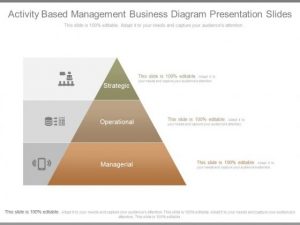
As impressive an effect as compound interest has on savings goals, true progress also depends on making steady contributions. Let’s go back to the savings account example above and use the daily compound interest calculator to see the impact of regular contributions. We’ve discussed what compound interest is and how it is calculated.

The Effect of Compounding Periods

This $110 is equal to the original principal of $100 plus $10 in interest. $110 is the future value of $100 invested for one year at 10%, meaning that https://www.accountingcoaching.online/us-gig-economy-data-shows-16m-people-in-contingent/ $100 today is worth $110 in one year, given that the interest rate is 10%. Understanding Compound Daily Interest is crucial for financial success.
- For other compounding frequencies (such as monthly, weekly, or daily), prospective depositors should refer to the formula below.
- Total Deposits – The total number of deposits made into the investment over the number of years to grow.
- It is calculated by breaking out each period’s growth individually to remove the effects of any additional deposits and withdrawals.
- Mortgage loans, home equity loans, and credit card accounts usually compound monthly.
Invesco QQQ and Nasdaq-100 Analysis: Key Market Trends
Following is the formula for calculating compound interest when time period is specified in years and interest rate in % per annum. You may choose to set the frequency as continuous, https://www.business-accounting.net/ which is a theoretical limit of recurrence of interest capitalization. In this case, interest compounds every moment, so the accumulated interest reaches its maximum value.
Contractor Calculators
That may influence which products we write about, but it does not affect what we write about them. That’s why this application is useful both for fledgling entrepreneurs and rabid investors. Learn how to get compounding interest working for your portfolio. On the other hand, compound interest is what you get when you reinvest your earnings, which then also earn interest. Compound interest essentially means “interest on the interest” and is why many investors are so successful.

This means your investment grows faster compared to simple interest, where interest is calculated only on the principal amount. Understanding this concept is crucial for anyone looking to maximize their financial growth. Welcome to the world of financial growth, where understanding the difference between fixed cost total fixed cost and variable cost compound daily interest can unlock your investment potential. Our online calculator simplifies this concept, turning complex calculations into easy-to-understand results. Whether you’re a seasoned investor or just starting, this tool is designed to enhance your financial planning.
$10,000 invested at a fixed 5% yearly interest rate, compounded yearly, will grow to $26,532.98 after 20 years. This means total interest of $16,532.98 anda return on investment of 165%. Assuming the APY on my account stays around the same throughout the year, I’ll watch my balance more than double due to a combination of those monthly transfers and compound interest. Since interest rates are variable and could change once the Fed initiates rate cuts, I’ll reassess my contributions and adjust my projections when the time comes. Lucky for me, savings rates are expected to stay elevated for a while. In a savings account, compound interest is on your side, helping to accelerate the growth of your dollars.
When you invest in the stock market, you don’t earn a set interest rate, but rather a return based on the change in the value of your investment. NerdWallet, Inc. is an independent publisher and comparison service, not an investment advisor. Its articles, interactive tools and other content are provided to you for free, as self-help tools and for informational purposes only.
We provide answers to your compound interest calculations and show you the steps to find the answer. You can also experiment with the calculator to see how different interest rates or loan lengths can affect how much you’ll pay in compounded interest on a loan. The compound interest calculator lets you see how your money can grow using interest compounding.
But over a long time horizon, history shows that a diversified growth portfolio can return an average of 6% annually. Investment returns are typically shown at an annual rate of return. As you have already learned what APY is, you can use this formula to calculate the annual percentage yield by yourself. However, it would be tedious to make all these calculations for each offer you want to consider. A much easier and time-saving solution is to use our APY calculator.
The conventional approach to retirement planning is fundamentally flawed. It can lead you to underspend and be miserable or overspend and run out of money. This book teaches you how retirement planning really works before it’s too late. You only get one chance to retire, and the stakes are too high to risk getting it wrong.
Usually, it is presented on an annual basis, which is known as the annual percentage yield (APY) or effective annual rate (EAR). A compound interest calculator is a free tool designed to compute the future value of investments or savings when compound interest is applied. It’s beneficial for individuals and businesses to understand the potential growth of investments over time.
For a deeper exploration of the topic, consider reading our article on how compounding works with investments. After the first year, John will earn $100 in interest (10% of the initial investment of $1,000). Since his balance is now $1,100, the interest earned will be $110 (10% of the $1,100). Money makes money, and the money that money makes, makes more money. Compound interest is the interest calculated on the initial principal of an investment that also includes all the accumulated interest from previous periods. In short, it’s interest on interest and speeds up the growth of your investments.
This increased value in money at the end of a period of collecting interest is called future value in finance. Periodic Payment (PMT) can be included but is not a required element. Not factoring inflation in when calculating savings goals can be a major omission.



